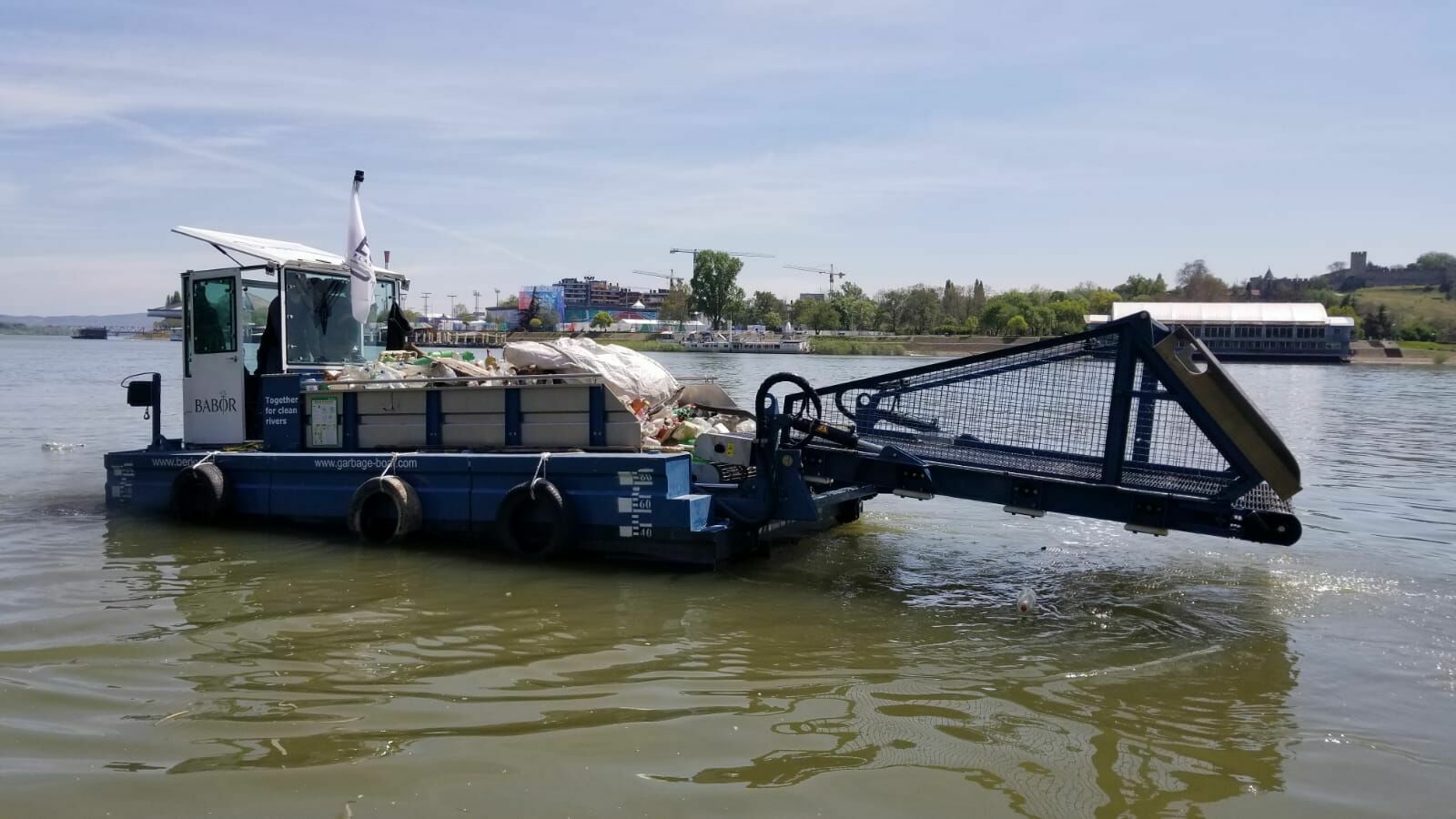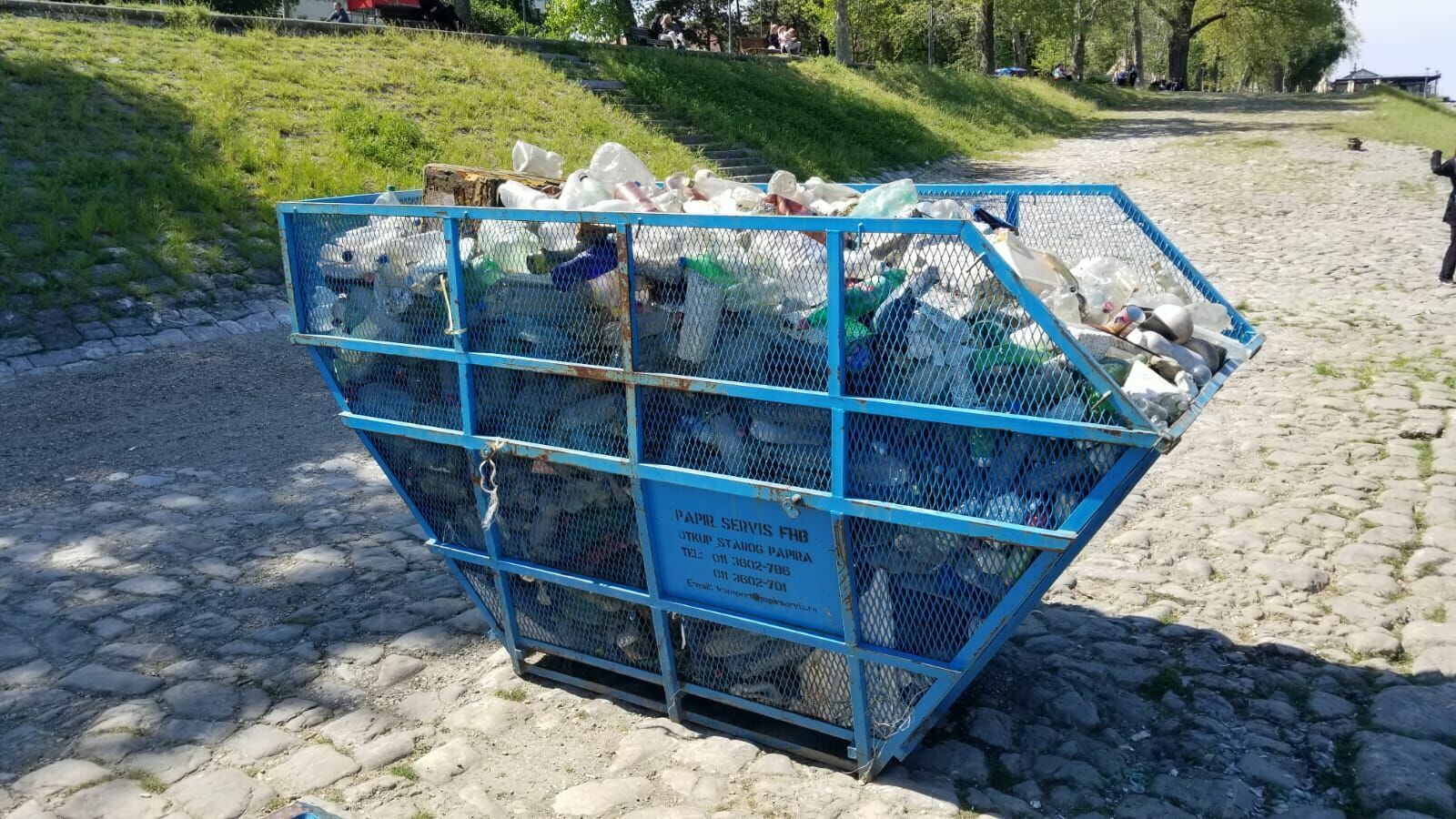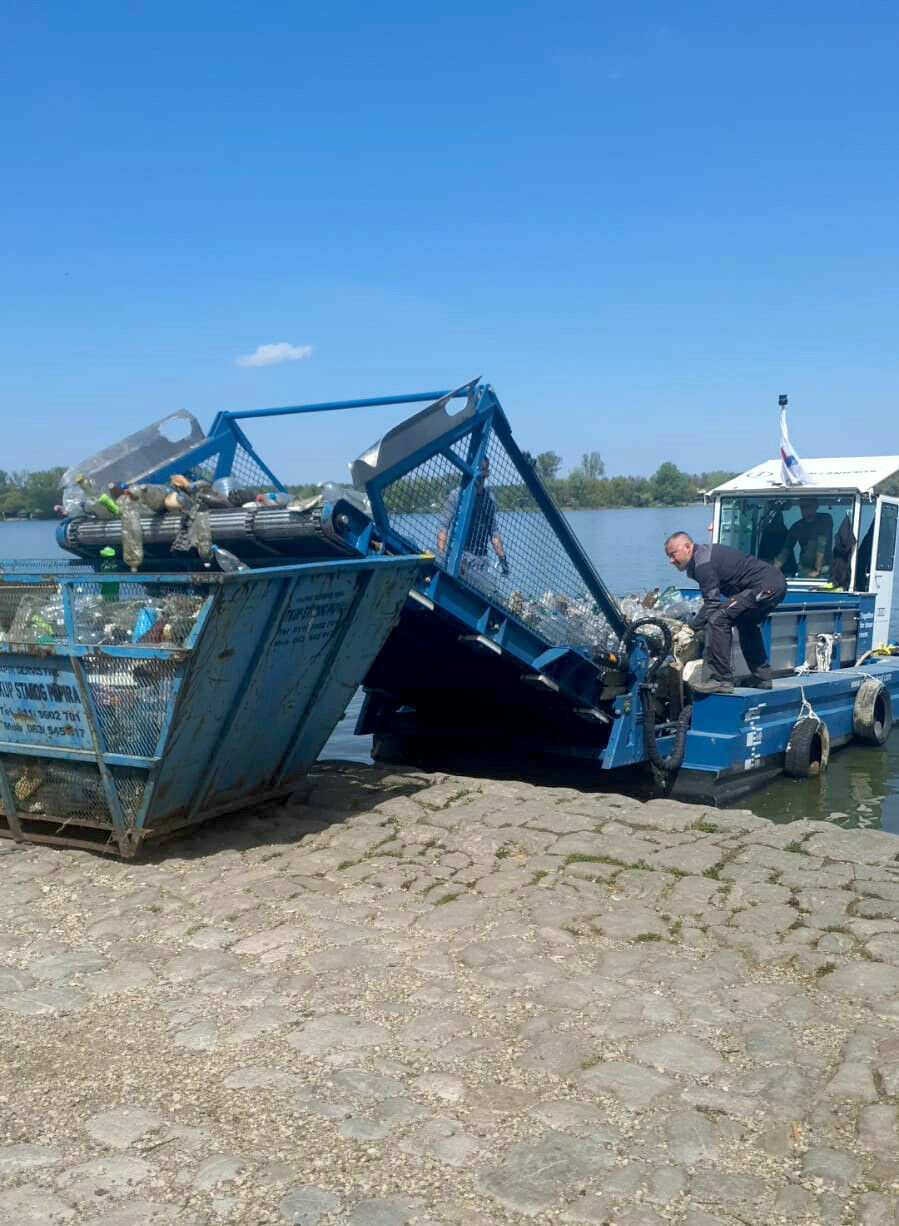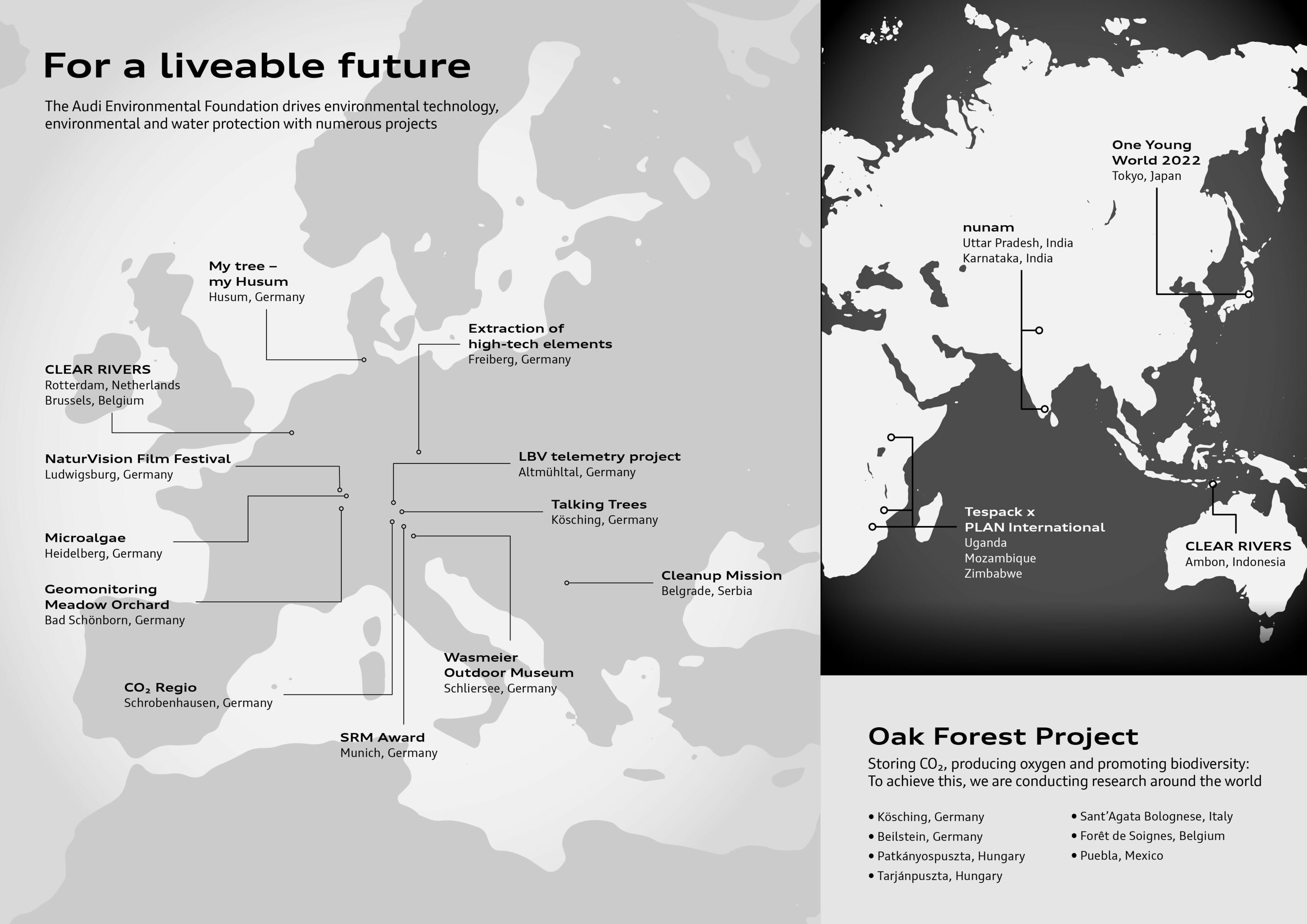Joint efforts for clean waters
- Collaboration with green start-ups everwave and CLEAR RIVERS
- 3,200 kilograms of plastic fished out of the Danube during a river cleanup
- Innovative “litter traps” installed near Brussels and Budapest
- Collecting plastic waste being upcycled
The Audi Environmental Foundation has been committed to clean waters for several years now. After all, the amount of plastic waste polluting rivers and oceans around the world is increasing at an alarming rate. “Water is the foundation of all life and unequivocally worth protecting. Clean waters, oceans, and rivers must be our common priority,” emphasizes Rüdiger Recknagel, Managing Director of the Audi Environmental Foundation.
Danube river cleanup
In April 2021, the Audi Environmental Foundation joined forces with green start-up everwave and cosmetics manufacturer BABOR to conduct a cleanup event on the Danube. To kick off the joint initiative celebrating Earth Day on April 22, 2021, a CollectiX trash collection boat from everwave collected trash floating in the river. Over the span of ten days, the boat collected around 3,200 kilograms of plastic alone. This corresponds to a total 110,340 1.5-liter PET bottles. In addition, other types of trash were fished out of the river – from glass bottles to tires and steel drums to insulation materials and beverage cans.
Differences in expertise, one common goal
“We can only solve the global problem of plastic pollution together. In this context, partnerships play a crucial role,” says Marcella Hansch, CEO of everwave, about the company’s collaboration with the Audi Environmental Foundation and BABOR. “We are all active in different industries and can therefore contribute different kinds of expertise to this joint initiative,” adds Rüdiger Recknagel, Managing Director of the Audi Environmental Foundation. “In addition to collecting trash, we want to raise public awareness about the major problem of water pollution, reach as many people as possible, and get them excited about protecting the environment.”
Smart technology and AI
A single CollectiX boat can collect up to 20 tons of material per day. In the process, a drone identifies trash hot spots. Sensors on the boats and AI are used to intelligently analyze the garbage. The boats are designed to adapt not only to the conditions of large rivers, but also to be able to navigate through smaller channels and arms of rivers.
The three partners are planning further highlights for 2021, such as educational events, campaigns at the sites of the participating partners, and cleanups at various locations.
CLEAR RIVERS – a proven partnership
The Audi Environmental Foundation has been collaborating with the non-profit partner CLEAR RIVERS since 2018 to reduce plastic waste in the oceans. The Dutch start-up has developed innovative litter traps that gather trash in collecting basins and prevent it from washing out to sea. The Audi Environmental Foundation and CLEAR RIVERS, together with Audi Brussels and the Port of Brussels, installed one of these litter traps in the Charleroi Canal in Brussels in March 2019. Another litter trap will be brought into operation in the Danube River in Budapest before the end of this year.
A net to catch trash in the sea
These litter traps consist of a net that collects litter floating in the water, which is washed into the net by the wind and waves. Special retention devices prevent it from being washed out again and reaching the open sea via the channel. Fish and other aquatic life, on the other hand, can dive below the net, so they can’t get caught. Using this method, about one cubic meter of garbage is collected every month. The collecting basin is emptied twice a week.
First collect, then upcycle
The two project partners, the Audi Environmental Foundation and CLEAR RIVERS, then recycle the trash in a clever way, using various techniques such as pressing, welding, and 3D printing to turn it into floating parks made of recycled plastic waste. These consist of several hexagonal pontoons, each five square meters in size and connected to each other. Some will feature benches made from recycled plastic, while others will be planted with moss, shrubs, or even trees. In this way, the floating parks not only enhance local residents’ quality of life, but also sustainably improve the habitat of insects, fish, and other aquatic life.
“We want to use new technologies like this to make our environment more livable,” says Rüdiger Recknagel. “Upcycling plastic waste is precisely in line with our foundation’s goals. We are committed to creating a livable future for people, animals, and plants.”



